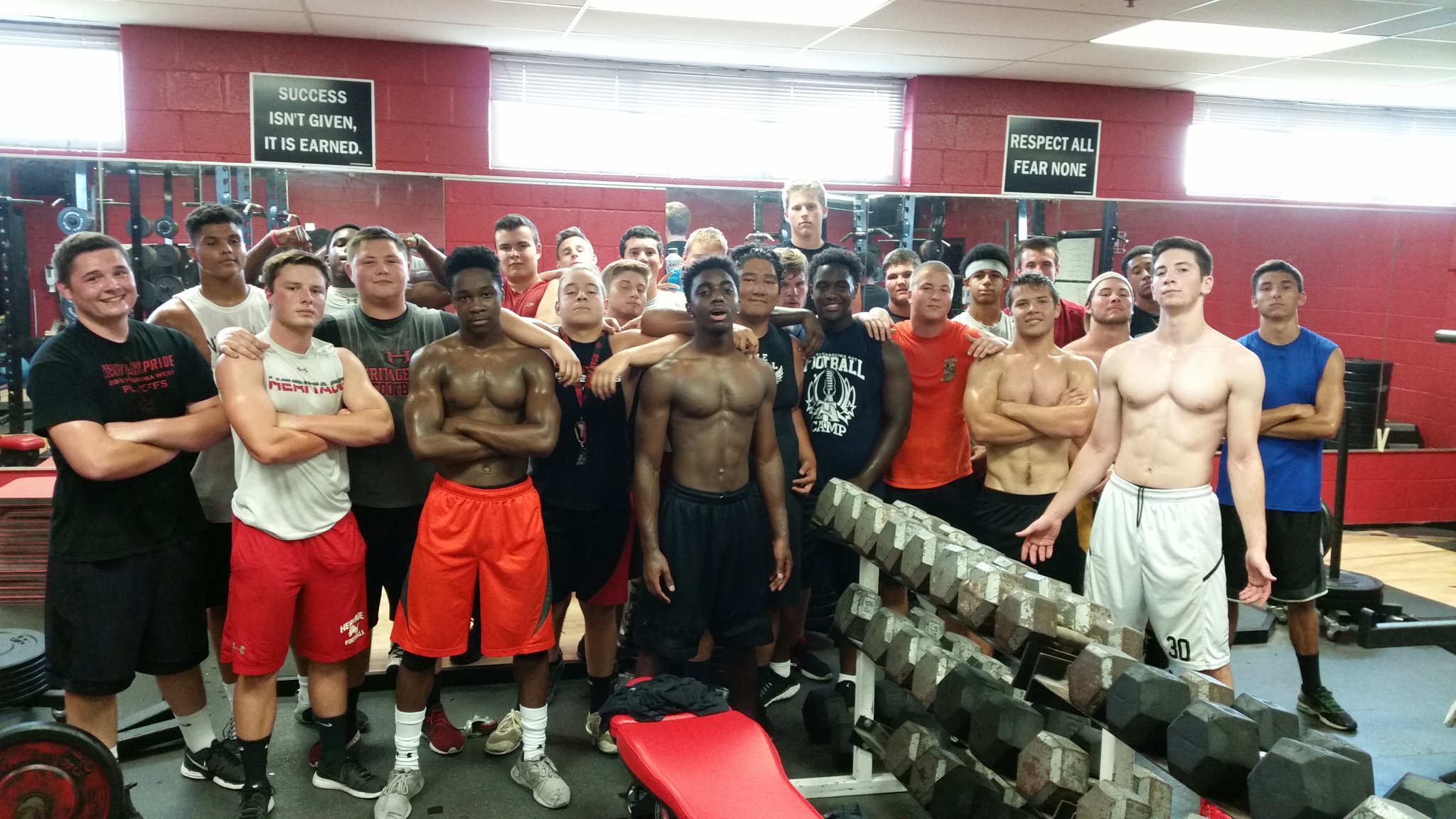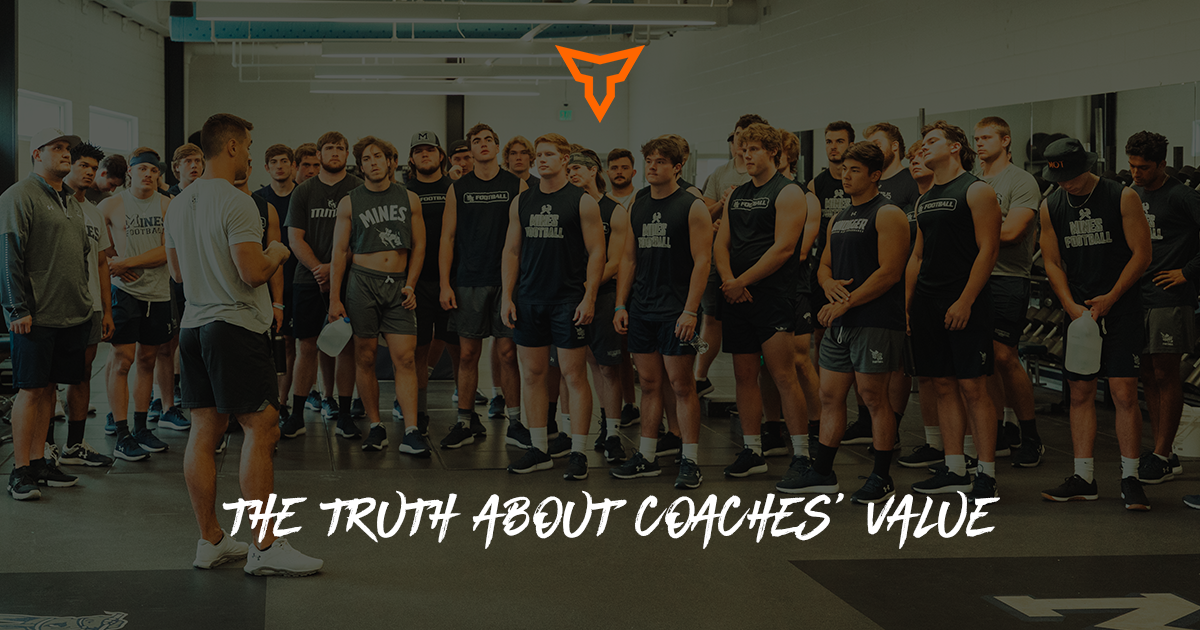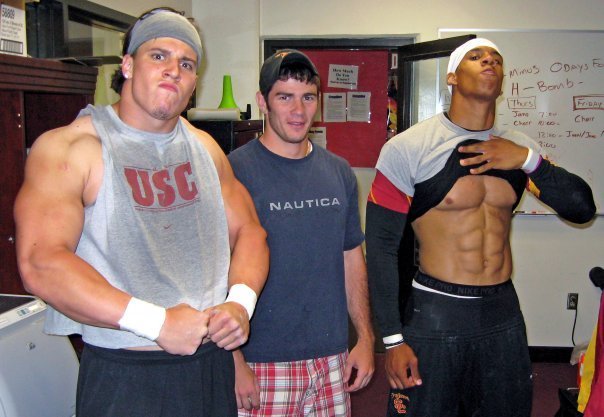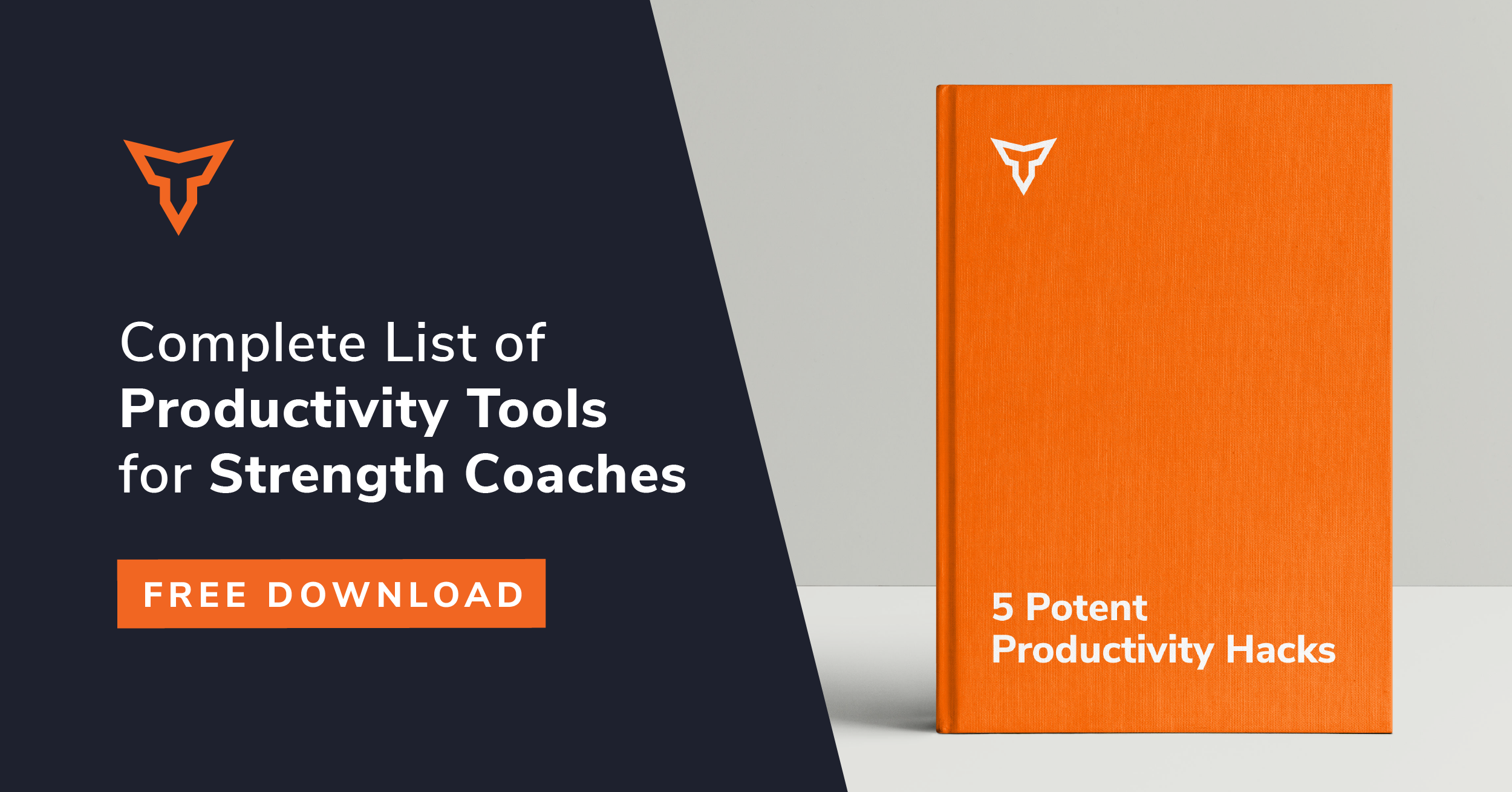“Yeah, he looks like Tarzan but he plays like Jane.” I heard that countless times as a way to describe a player in a violent collision sport like football, and embarrassed to say it's probably even been used to describe me start playing football. I think it's just an old fall back saying when coaches are trying to figure out how to say that the athlete is simply is an "underperformer". By an underperformer, I mean a person that has all the physical talents and gifts but does not use them to their fullest potential. If you’ve been coaching for a while, then I’m sure you’ve had a chance to work with these people. As coaches, I hope you can understand just frustrating it can be to have to work with people like this.
Over all of the years I’ve been coaching, there have been certain trends and commonalities. After working with thousands if not tens of thousands of people, I wouldn’t be a very good coach if I didn’t identify the similarities within the types of underperformers. Now, I am going to have some fun with their titles, but call these people anything that you want, their traits are going to be the same. This list is not exhaustive but should cover most of the types of underperformers you might be working with and should help you figure out what to do with underperformers.
Low Effort All-Star
This is your individual who has skill beyond belief in their sport but yet when it comes to their performance training, they don’t see the need for it. For years this was the stereotypical men's hockey player. These players grew up in a time where the classic quote from the Great One, that’s Wayne Gretzky for all you non-hockey readers, about how when a weight scores a goal he'll start lifting weights. Now, I’m happy that many of the hockey players I work with have dropped this mindset, but these Low Effort All-Stars are still visible every day. I’ve seen that this type of underperformer can be found in the best player on the team. These people can be the best on the court, field, or rink and they don’t see the need to train hard in the offseason. And why should they? They are already one of the best on their team. And this is why this is the most dangerous type of underperformer-because everyone looks to these people because of their sports skill and will mimic them if given the chance. The most frustrating part of the group is because you can’t hold playing time over their heads, as their sports coaches are typically going to play them because that is their best player. By far, it's the hardest to figure out what to do with underperformers in these situations.
The End of the Bench Superstar
Here is the complete opposite end of the spectrum as the Low Effort All-Star. Where the All-Star is your best player on the team, this Superstar is either guarding the water cooler or at the end of the bench during the game. While I do poke fun at this group, they are still ones that most of us like to work with. Simply because these are the people that will do everything right for you in the weightroom or training session. They typically show up early and stay late for everything you offer. Every optional workout. Every stretch session. They leave every workout with nothing left in the tank. As I said, these are the people most coaches like to work with simply because of their effort and attitude. Here’s the problem: they simply suck at playing their sport. Where the Low Effort All-Star can have others trying to emulate them because of their high-performance skills, the End of the Bench Superstar can’t get anyone to follow them because of their low-performance skills. Personally, I biggest frustrations with this group is that I want them to have success so much it hurts. It just tears me up inside because they just can’t play the game. When it comes to working with athletes their ability to play is still the ultimate test.
Drinking Fountain All American
This person is the hybrid between the prior to athlete examples. They have some ability and they're always showing up for workouts, but seems that they're happy just to be a part of the team. I say this is because every time I see someone from this group it feels like they spending more time getting a drink then they do actually getting through the workouts. They are there for everything except when it's time to work they started disappearing into the background, are always looking like they're working hard getting a drink of water.
The Know-It-All
Here is an athlete who is their own worst enemy. In their process of trying to improve themselves somewhere along the way, they were able to diminish their own greatness simply because they try to know everything about a topic. Sure it sounds like a good thing, but these people have taken knowledge to an unhealthy extreme. This person follows all the fitness professionals on Instagram, Twitter, Snapchat, Facebook, reads all of their blog posts, and listens to all their podcasts. They're able to tell you all the things that high-end athletes are doing for the latest and greatest piece of wearable technology or equipment. There’s the problem: sure these athletes might know all the theories and all the hacks but they are greatly lacking in one very important area of knowledge. They are lacking all the knowledge from having their ass in the gym time.
The Lukewarm
This last category is the personality type that drives me the craziest. These are the people that have become complacent with just being average. If they have passion no one has ever seen it. What we have seen is an average work ethic, with an average effort, done with an average enthusiasm. As I said, these people are complacent with being average. This group has no inflection in their voice when they talk about things that they're passionate about. There's no sense of urgency in their actions. They are as Teddy Roosevelt warned about this group in his Man in the Area speech “...who at the best knows in the end the triumph of high achievement, and who at the worst, if he fails, at least fails while daring greatly, so that his place shall never be with those cold and timid souls who neither know victory nor defeat.”
Now that we defined groups of underperforming athletes, there's one important question for you to think about. The question is overly simplistic: What are you going to do about having an underachiever in the training session? In a team setting it is a greatly different situation than training people on a one-on-one basis. I've always viewed underperforming and being mediocre as a social disease of the mind. Just like diseases like smallpox or polio, you can fight the disease of the mind by vaccinating people to protect themselves against those diseases. The entire idea about vaccinations is that is there is an outbreak it doesn’t spread and infect others because everyone else has a higher ability to resist the disease.
The diseases of the mind like complacency, complaining and underperforming are hard to fight because they are someone's faith, ideas, or beliefs. Remember, people choose to die for their faith, ideas, and beliefs. So instead of trying to fight a winless battle against someone's beliefs, I try to create an environment where underperformance is not welcomed to protect those that are vulnerable to succumbing to those diseases. I’ll try to describe some of my top strategies as well as I can in this blog. I expect you’ll have some questions, so comment below or reach out to me and I’ll answer them as best as I can. Here we go!
It Pays To Be A Winner
You would expect people involved in college athletics should know this idea. We reinforce it every day with the little competitions we run with each team. If two athletes are racing, the loser might have to pick up after the race. Or they might have to take the teams dirty workout clothes and towels to the laundry room and start the wash. Or we even let the athletes wager with up-downs, so when someone loses they have 2, 3, or 10 (or whatever they bet) up-downs to complete right after the race. Whatever extra work we decided on, our coaches are always telling the athletes: “It pays to be a winner.”
Ring It!
In the weightroom we have an old school bell mounted to the wall. Every time one of our athletes sets a new personal record, then they have earned the right to ring the bell. Briefly going into neural physiology, this reward is a hit of dopamine for the athletes. Like the people who market tobacco or gambling, I’m trying to get people addicted to my product: which is personal improvement. Other than the right of ringing the bell, when people hear the bell everyone (who isn’t in the middle of a rep) comes over to celebrate with the athlete too. It helps reinforce the idea of setting a new best with the bell ring and the idea that each of us needs all of us while all of us need each of us.
Go For The Heart
This is the most time-consuming strategy to handle underperformers. When they do something out of the ordinary positive behavior for them, take a few minutes to write their parents a handwritten note. Yes, a handwritten note. This is more meaningful than an email and can stand out that much more. I’ve found out that most people, at some level, still want to make their parents proud. When the parents get a note like this, they are going to mention it to the athlete which should reinforce the behavior. This is where you need to know your athletes. If they have a strong and positive relationship with someone else than their parents, send them a note too.
Participation Awards
Hold on. Hold on! Before you start getting angry about me promoting a participation award, listen to this. While reading the book Raising Men, written by retired Navy S.E.A.L. Eric Davis, there were two lines that have helped changed my mind about participation awards. “Participation awards reward showing up, the first and most important principle of winning; when we don’t show up, we lose every time.” See, I told you to hold on. This idea helped changed my mind, but the idea that sealed the deal for me was this. To make participation awards meaningful then need to be used with performance awards. As Eric Davis said, “Participation awards are the launchpad and the performance awards are the rockets. Nothing can fly without both.”
Well there you have it. We have defined the main groups of underachievers and you’ve seen a handful of strategies on what to do about these people. The art of coaching is knowing what strategy to apply to each person and in each situation. The only way you can develop your art is by practice, practice, and more practice. While I chose to have a little fun with this topic, I know how deeply frustrating it is to work with people that are historic underperformers. Believe it or not, these people are the ones that keep me up at night, since I feel like I’m letting them and their team down because I haven’t figured out how to reach them, yet. Yet, is the key word in that last sentence. Yet, means that we haven’t given up on them. Yet means that we are going to try something new. Yet, means that we know there is a way. So keep trying. This is what you signed up for when you decided to become a coach.
Subscribe to our blog
Subscribe to receive the latest blog posts to your inbox every week.
Related posts

Building Great Athletes Starts With Character

The Truth About Coaches' Value


